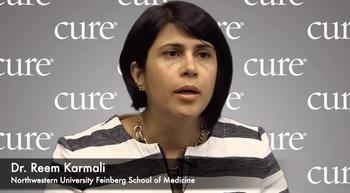
Mantle cell lymphoma remains incurable, despite researchers’ best efforts. However, new treatment options show promise in the relapsed/refractory setting and may improve patient outcomes if moved to the front-line, according to Dr. Reem Karmali.

Mantle cell lymphoma remains incurable, despite researchers’ best efforts. However, new treatment options show promise in the relapsed/refractory setting and may improve patient outcomes if moved to the front-line, according to Dr. Reem Karmali.

The president and founder of Blue Faery: The Adrienne Wilson Liver Cancer Association discussed new initiatives and what’s on the horizon in the treatment of liver cancer.

In assessing the quality of family cancer history entered into electronic health records, researchers found that such reporting was suboptimal – highlighting the need to optimize online collection with a provider-free approach.

Increased tumor mutation burden (TMB), which is associated with more inflammation, may be a factor in determining which patients with lung cancer are at higher risk for depression.

The growing use of immunotherapy in oncology has confronted many community practice-based oncologists with challenges to implementation, but one advocacy group’s new initiative aims to educate and empower.

The financial navigation program at Taussig Cancer Institute provides patient assistance and helps them understand out-of-pocket costs.

Although palliative care has been shown to improve survival rates among patients with metastatic renal cell carcinoma, its utilization remains low while certain barriers and disparities still exist.
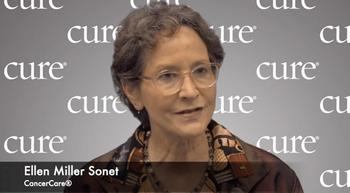
With so many cancer treatment options now available, clinicians may still fall short in understanding what’s important to patients.

Maintenance therapy with Imbruvica appeared to be a feasible option for patients with mantle cell lymphoma, according to Dr. Reem Karmali.

An international study of nearly 2,000 patients with renal cell carcinoma exposed many unmet needs across all stages of disease.
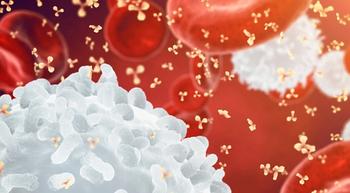
Treatment with lisocabtagene maraleucel, also known as liso-cel, demonstrated clinical activity and appeared tolerable among patients with relapsed/refractory mantle cell lymphoma.
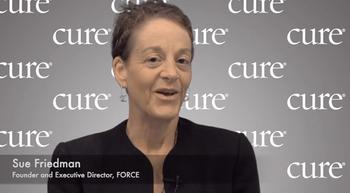
Sue Friedman, founder and executive director of FORCE, discussed how a breast cancer diagnosis at age 33 and a family history of cancer led to the creation of Facing Our Risk of Cancer Empowered.
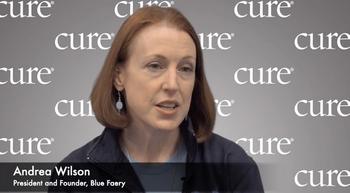
Andrea Wilson, president and founder of Blue Faery: The Adrienne Wilson Liver Cancer Association, spoke with CURE® at the 2019 ASCO meeting about the loss of her sister and how it inspired her to found Blue Faery.

Jennifer King, from the GO2 Foundation for Lung Cancer, discussed what patients can do to help address the stigma associated with lung cancer.

Researchers adapted a screening tool to help treat the whole person during cancer care.

A practice improvement project at the Mayo Clinic helped to increase attention to family health history and identify those at risk for cancer.

The addition of Venclexta to Gazyva induced prolonged progression-free survival – or the time from treatment to disease worsening – among patients with previously untreated chronic lymphocytic leukemia.

The Food and Drug Administration revealed its pilot program, designed to assist oncologists and patients requesting access to unapproved therapies in the cancer space.

After progressing on prior therapy, 44% of patients with locally advanced or metastatic urothelial cancer who were treated with enfortumab vedotin demonstrated a response to treatment, according to phase 2 study findings.

The addition of Kisqali to standard-of-care endocrine therapy significantly improved overall survival for premenopausal women with advanced HR-positive/HER2-negative breast cancer compared with endocrine therapy alone.
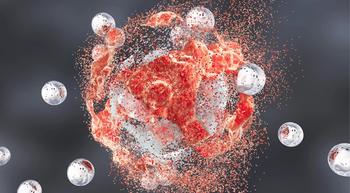
The phase 3 POLO trial is the first randomized study to establish a biomarker-driven approach in the treatment of metastatic pancreatic cancer.

Two oncology dietitians weigh in on the results of a recent study that show a low-fat diet rich in fruits, vegetables and grains can reduce the risk of dying from breast cancer.

Using Revlimid as a preventative treatment for smoldering multiple myeloma significantly reduced the risk for the precursor disease to progress into cancer, compared with just observation.

The survey contained questions on a range of issues they may have experienced, including pain, fatigue, as well as issues with sexual function, body image and finances. Researchers then looked at the anxiety and depression associated with those issues, and talked with patients about what they thought might be causing those problems.
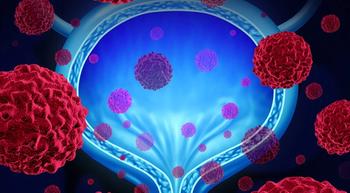
Enfortumab vedotin may be a potential novel therapy for patients with locally advanced or metastatic urothelial cancer, according to updated phase 1 study findings presented during the 2018 American Society of Clinical Oncology (ASCO) Annual Meeting.

Using next-generation sequencing (NGS) to test patients with non-small cell lung cancer (NSCLC) for all known genetic mutations associated with the disease appeared to be faster and more cost-effective than testing for one gene at a time – not to mention the results could have treatment implications.

Patients who would otherwise not have access to genetic counseling at community-based medical centers can benefit from the use of remote phone or video technology to take advantage of these services, according to study results presented at the American Society of Clinical Oncology Annual Meeting in Chicago on June 1-4.

Insomnia is a common issue that many patients and survivors face. However, cognitive behavioral therapy and acupuncture was proven to be helpful in a recent study.

“This is the first phase 3 study to show an advantage of a PARP inhibitor over standard of care chemotherapy in breast cancer patients with a BRCA mutation,” said principal OLYMPIAD investigator Mark E. Robson, M.D., Clinic Director of the Clinical Genetics Service at Memorial Sloan Kettering Cancer Center.

PolyBalm was effective in mitigating chemotherapy-related nail damage, according to a recent study presented at ASCO.